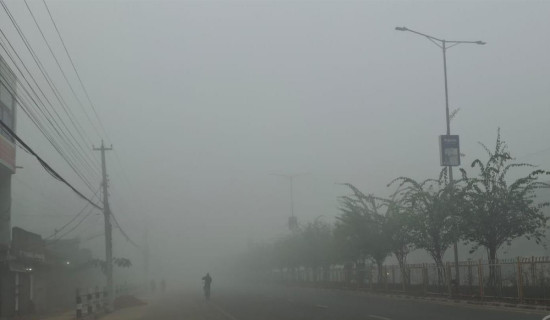- Friday, 2 January 2026
Cooperative Quandary
The cooperative model, alongside Community Forest User Groups, is one of Nepal’s few success stories recognised internationally. Both initiatives have proven their resilience in contributing to Nepal’s socioeconomic development. Yet the recent turbulence in Savings and Credit Cooperatives (SACOS) underscores the consequences of diverging from core cooperative principles. With more than 34,000 cooperatives and 6.5 million members, the sector stands at a tipping point, contributing around 3 per cent to Nepal’s economy but burdened by severe challenges.
The cooperative sector, considered exemplary for financial inclusion and community development, is mired in controversy and chaos. It has shaken the faith of millions of citizens who had saved their hard-earned money. The cooperative sector has also empowered grassroots communities, encouraged savings, and provided vital financial support to marginalised communities. However, recent scandals involving fraud, financial mismanagement, and questionable operations have overshadowed achievements. It has been revealed that there are cracks in cooperative systems, which are plagued by insufficient regulations, inadequate oversight, and the tendency of reaping personal profits.
Governmental oversight has been woefully inadequate, with regulatory bodies lacking sufficient manpower, technological infrastructure, and effective monitoring mechanisms. This has allowed cooperatives to operate unchecked, with certain operators exploiting their power to amass large deposits under the guise of social activism. Some of these organisations have diverted funds into unauthorised sectors, including real estate and media, further endangering depositors’ hard-earned savings.
The scale of mismangement is staggering. According to police records, cases involving over Rs. 80 billion in cooperative fraud have emerged, and more than 400 individuals have been apprehended. Reports also suggest that some depositors, whose wealth stems from illegal sources, are reluctant to pursue claims to avoid legal scrutiny. So, a transparent regulatory framework is essential to address both the cooperative sector’s ethical and operational shortcomings. One significant recommendation put forth by various stakeholders is the establishment of a robust, autonomous regulatory mechanism. Such a body could include representatives from Nepal Rastra Bank, the Finance Ministry, and experts from cooperative and financial sectors.
This institution could facilitate thorough monitoring, enforce proper accounting practices, and mitigate conflicts of interest. The authorities could also implement digital infrastructure to enable real-time monitoring and a credit information bureau, which could strengthen oversight and transparency within the sector. Reducing the sheer number of cooperatives is another pressing need. With the country having one of the highest cooperative densities globally, the government should support voluntary mergers, particularly among smaller cooperatives, to streamline operations and enhance financial resilience.
This move would also enable better allocation of resources for monitoring and capacity-building. The government must act decisively to implement the recommendations provided by the several commissions. Recommendations including the creation of a rehabilitation fund, implementing strict auditing standards, and enforcing a deposit guarantee fund should be implemented. The integrity of the cooperative must be safeguarded through immediate, impactful reforms. By embracing a systematic overhaul of regulatory policies, setting clear standards, and fostering transparency, the government can prevent further erosion of trust among the public. The government and regulatory bodies must step up measures to protect millions of members who rely on cooperatives for financial stability.
















